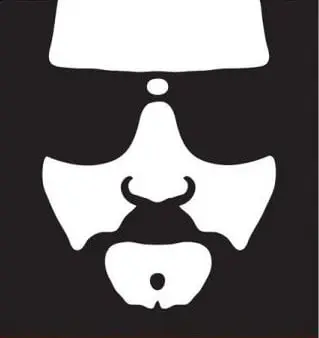Real answer: these are actually real languages! They’re just conlangs, or constructed languages, instead of natural languages. The major problem with conlangs generally ends up being the limited vocabulary, but the grammar foundations are usually solid.
I actually really like Klingon as a language because it was intentionally designed to be alien, and specifically to be very Klingon. Most languages are Subject-Verb-Object (like English and other Western languages) or Subject-Object-Verb (like Japanese or Hindi). Klingon, however, is Object-Verb-Subject - it’s very direct with the emphasis placed on the target of the sentence, which makes sense with the Star Trek world and Klingon culture.
Fun fact, Klingon has at least one native speaker - some guy raised his daughter to speak Klingon as well as English. (I’m not a fan of this - on one hand, learning multiple languages from an early age is a huge leg up in being able to learn more languages in the future, but on the other hand Klingon is entirely useless as a primary language given its structure and the few other people who speak it.)
Speers was also the only person who would speak Klingon to Alec and the boy never saw Star Trek during this experiment, so didn’t ever see anyone but his father speaking it. As everyone else spoke English, Speers stated when Alec was about three years old, “He stopped listening to me when I spoke in Klingon. It was clear that he didn’t enjoy it, and I didn’t want to make it into a problem, so I switched to English…”
Today the teenage Alec no longer is fluent in Klingon and reportedly can’t even pick out the meaning of individual words of the language.
So klingons would like the song Hammer Smashed Face?
Face, smashed by hammer.
Face, when the hammer fell
Sokath, his eyes uncovered.
I both absolutely hate this episode for how bizarre it is, and love it at the same time for how alien and unique it is.
I’m hard pressed to believe that a society could communicate on metaphors alone.
No, that’s still subject-verb-object or at least adjective clause-noun depending on how it’s read (it should have a hyphen in that case but stuff like that gets left out a lot)
Guess I got my subject and object confused. Never paid much attention to sentence diagrams
qab ronmoh Mupwi’? Doesn’t really make sense if you don’t know who does the hammering…
Man I bet Klingon death metal would be amazing
Excellent.
Here is an alternative Piped link(s):
https://piped.video/SKwM8f6vzEI?si=csuTzsEWL_hqvl5a
Piped is a privacy-respecting open-source alternative frontend to YouTube.
I’m open-source; check me out at GitHub.
Even cooler, in my opinion, are languages that are even further outside of common indo european language paradigms, such as Navajo which uses degrees of animacy instead of grammatical gender and Basque which uses ‘focus’ and ‘topic’ to determine word order rather than subjects and objects.
such as Navajo which uses degrees of animacy instead of grammatical gender
What makes their use of degrees of animacy not a use of grammatical gender? Keep in mind that even though it’s called “gender” because in European languages it usually maps in some way onto human sexual identity, linguistically speaking grammatical gender has nothing to do with human gender identity.
Good point. What I meant is that it’s different from grammatical gender typical of European languages as you defined it.
Grammatical gender is a bad name for such a general concept that goes beyond the social definition of gender. In fact, that term is a bit eurocentric.
In fact, that term is a bit eurocentric
Yeah without a doubt it is. There are a few non-European languages that use a masculine/feminine grammatical split, including Arabic and Hebrew, but both masc/fem and masc/fem/neuter are hugely prevalent in European languages, and I doubt the term got its name from Arabic linguists.
I’ve just done some Googling and learnt that some people prefer the term “noun classes” rather than grammatical gender, especially when the classes are not based on human cultural genders. Other people make a distinction between what “noun classes” means and what “grammatical gender” is, using them for two different concepts. So apparently the term “grammatical gender” is not quite as uncontroversial within linguistics as I thought.
That can’t be right. I’ve never heard of a language called Dutch. That’s just something they print on some food labels to make them seem better.
/s for the dense.
I might be wrong, but isn’t German Subject-Verb-Object-Verb?
The main verb is most often in the second position, the second verb you are referring to is a placeholder for an auxiliary verb that usually is a different form of a previously main verb
Removed by mod
Some of my earliest memories are watching The Next Generation with my parents. I never stood a chance! I was always destined to be 🤓
Being knowledgeable is something worth mocking

Caveman moment
Removed by mod
There are two things in the world I can’t stand: people who are intolerant of other people’s cultures… and the Dutch.
Smoke and a pancake?
Cigar and a waffle?
Pipe and a crepe?
Bong and a blintz?
No? Well, then there ish no pleashing you.
“That’s not right.”
Don’t mind if I do, thanks
It’s funnier with French because no one hates the Dutch language more than the Dutch, but France thinks everything it does is the best.
I’m Dutch and I approve this message.
Why do the Dutch hate the language?
Because the entire language is a fucking exception
It’s a stupid language making no sense at all. Weird grammer. Plus, it has weird sounds. Like the R and G, and flattened vowels. Whenever our prime-minister speaks English, it’s a massive shame factor for any Dutch person. Oh and not just the current bozo, the past several as well. Like if it’s mandatory to speak horrible English to become prime-minister or something.
French accent? Super sexy. Irish? Scottish? Oeh yeah. German? So sophisticated, or a female with soft German: rrrrrrrr, melting. Italian? Spanish? Greek? Hell yeah. Norwegian, Danish? So bad ass viking. Swedish? Sure. Even Sud Afrikaans English accent is sexy AF. That language even originates from Dutch!
But Dutch itself? Boner gone, give me a paper bag with 2 holes in it and fast!
It’s not without reason English officially isn’t considered a foreign language in the Netherlands anymore. There are even talks about adapting it as a second national language, as the general knowledge of English is of a certain level, it’s getting close to Dutch. The only people in the Netherlands who are unable to speak English are a few boomers and some who haven’t read any book besides the Bible.
The grammar rules make no sense and sometimes have more exceptions than cases it applies to.
I’m married to a foreigner and regularly get stuck trying to explain why a sentence is the way it is.
The grammar rules make no sense and sometimes have more exceptions than cases it applies to.
said the native speakers of like half the languages on this planet
Dutch grammar is about as regular as most West Germanic languages (Germanic grammar tends to be relatively irregular compared to the norm though) but something that may make it less complex in many respects than languages like Icelandic or German is the total lack of cases (in the modern standard) and only 2 grammatical genders. of course, when looking at that part of the language, languages like English and especially Afrikaans are much more straightforward, with a complete lack of grammatical gender, as well as Afrikaans being very regular.
Althoughhh Dutch, and English, do have extremely opaque orthographies in terms of reading, trying to figure out the pronunciation of a word based on the spelling is pretty much useless most of the time, which isn’t super common among writing systems. But that doesn’t mean anything about the languages themselves.
But pretty much every language has a lot of speakers who think it’s super hard and a lot of speakers who think it’s super easy, when in reality no language is inherently hard or easy to learn – 99% of what makes a language easy or hard to learn for someone (other than motivation/passion/necessity/exposure of course) is how familiar it is to their native language(s) and other languages they speak. English speakers will go around saying “English is the hardest language to learn” or “English is the easiest language to learn”, same with Dutch, Hungarian, Hindi, Armenian, Tamil, etc. But English will generally be one of the easier languages to learn for people who speak e.g. German, Dutch, Norwegian, French (although the spelling is a completely different matter). Hungarian and Estonian will be relatively easy to learn if you speak, say, Turkish or Finnish. Ukrainian is pretty easy to learn for Belarusian & Polish speakers, Arabic will be easy to learn for Hebrew speakers. Japanese speakers usually find Korean extremely easy, and vice versa, while both may find English extremely hard, and vice versa.
I mean learning a language well enough to use regularly at all isn’t easy by the slightest measure, and it takes thousands of hours of frequent study & usage, so when I say “easy” I’m speaking relatively. I find Russian knowledge far easier to get/retain than my German skills for various reasons even though German is more similar to the languages I know the best (learning material and liking the language obviously plays a huge part in this).
TLDR?
Lees het gewoon, luie donder. Of heb je de aandachtsspanne van een doperwt?
Ik heb de aandachtsspanne* van een cashewnoot*, jij Nederlandse rukker!
*Bewijs dat jouw taalgebruik stom is
deleted by creator
Because it’s bog German?!
On a more serious note, I’ve learned both Dutch and German as foreign languages and I prefer the former to the latter.
Een probleem?!
French people are busy hating on themselves. I’ve heard about French people hating on people from Paris so since Ive ment French people during my exchange/foreign semester I tried asking them if they really hate people from Paris and they confirmed it for me. All non Paris French people hate on Paris French people lol
This sounds similar to most dutch people silently hating people from Amsterdam.
Silently??
I bet the politicians are thankful for a successful class stratification system
I liken this to people’s irritation with NYC-philes - the ones who think the universe revolves around NYC, to the point when even on the west coast, they refer to it as ‘The City’. And so much of Paris is radically more inwardly-celebrating-cosmopolitan, diverse yet oddly
intolerantuptight? - than the smaller cities much less the countryside, I think I can grok their irritation.Having only visited twice in my youth, certainly no expert.
Paris and the rest of France are two different countries that are racist towards the other.
I wouldn’t say french is the best language by any means. I think that while it has a pretty extensive vocabulary it is quite inefficient and conservative by nature
The reason it has an extensive vocab is because the french are purists who need to invent their own version of every new word in existence, instead of just loaning words from other languages like every other language does.
An example of this is “computer”. Every other language uses that term, except for fucking french who call it an “ordinateur”
This is a tad misleading.
Other languages may use the word computer in their language but some also have their own word, even if not using it.
Spanish has ‘el ordenador’ and German has ‘der Rechner’.
Also, it’s a bit rich to say French has an extended vocab when English sometimes imported French words twice, like warranty and guarantee, or guardian and warden. In fact, English supposedly has more words than French.
French is purist but then English took words like ‘dette’ and ‘doute’ and added a ‘b’ just to keep it closer from Latin… right.
Les francophones aiment perpétuer l’idée que le français est une langue riche, complexe et difficile, mais en réalité c’est rien de si extraordinaire. ;)
This is a tad misleading.
I learned on duolingo that computer is called computadora in spanish.
Also, the german word Rechner is only used for Desktop PCs. Like, the actual chassis with all parts inside. A Laptop is a computer but nobody would call it a Rechner.
If you use Rechner without context, everyone would assume you’re talking about a calculator.
Some slight pushback from a French person: we aren’t purists, our old reactionary institutions are purist (notably the Académie Française which, fun fact, is officially “in charge” of the french language while having zero linguists in its ranks).
Hang out with a group of young adults in France and you’ll hear a ton of English and a decent sprinkling of Arabic amongst the French.
Also, it’s not just French, Spanish has “ordenador”. It makes some linguistic sense; computers do compute but they also sort and arrange numbers.
French also has borrowed vocab. Not every other language calls it computer, and not even every european language does
And that’s bad?
Not any more than other Europeans I fear.
Wait hold on. We’re just the best at being pricks! 💪
Right, what’s ‘Dutch’?
Deutsch is the German word for German. I think they just made a typo and put the wrong flag or smth.
Ich bin ein Germaner
I am a doughnut with jam filling and vanilla icing
I mean only in English is the term Dutch used for the Netherlands. It’s a really old thing from around the 1500’s that stuck around.
Also that’s the flag of Luxembourg.
only in English is the term Dutch used for the Netherlands
meanwhile in multiple slavic languages pretty much the same word (датчане, данцi, datčáne, …) refers to Danes.
You’re playing a dangerous game with those kind of words makker
A kind of oven, I think.
It’s when everyone pays their own bill at the restaurant.
A kind of rudder iirc
Swampgerman.
Congratulations on understanding the joke!
I don’t watch the franchise either way
Houd je smoel anders zet ik je je kop tussen twee oren
In case anyone else is curious what that says, it’s:
‘ach ghu’ DaSovchu’be’ je
Q’PLA!
YOU N’WAH!
we got high valyrian before Persian or Tagalog
The Tagalog speakers I knew sprinkled in enough English that I could usually glean what they were talking about anyway.
I think it’s properly called Hollandaise.
I don’t believe you. Sauce?
That’s a sauce
Yes, Mario. That is sauce.
All languages are fake…
*made up
wait till this guy finds out people still learn Latin
And promptly forget it the day after they no longer need to know it…
Et tu Brute?
Globally popular languages are so full of Latin that it’s just about impossible to completely forget any of it.
nIDwI’ leghmajvaD ngoQ’e’ nIDwI’! (This aggression will not stand!)
Spreek NEDERLANDS met me!
SPRICH DEUTSCH DU HURENSOHN
red deitsch oida
Nein.
Diets
Preik Nederlandsk med meg!
It’s funny the first time I went to Amsterdam, the first thing I noticed was that I could read half of every sign. This is after listening to Dutch language several times and thinking it sounded more klingon than germanic
Het is niet mogelijk.
Nou mag je eens heel goed luisteren, jij hondelul.
Go wizard somewhere else, Gandalf.
And take your clogs with you.
Holländisch ist nur Deutsch wenn man Halsschmerzen hat.
More like rapidly flipping german, french, english, swedish and danish channels on a TV
Zeg klootviool
Geef me een klapp papa
No double consonants at the end of Dutch words except for loanwords. Now you’ll remember this instead of something you’ll find useful. Enjoy!
klap*
Qapla’























